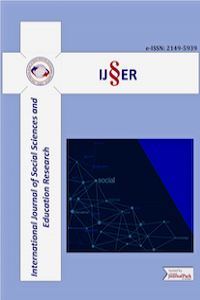Inclusion and exclusion in democracies: A theoretical comparison of John M. McCormick and Iris M. Young
Elections, as one of the main pillars of modern democracies, are necessary but not sufficient condition for ideal form of representative democracy. John M. McCormick and Iris M. Young problematize the democracy understanding solely based on fair and competitive elections. While they both agree on the problem of modern democracies as executed by wealthy elites, there is a divergence in their proposed solutions. While McCormick sees the problem as inequalities between classes and proposes excluding the wealthy elites from dominating the political representation and decision making, Young proposes an inclusive approach that empowers marginalized groups. This article compares and contrasts these two theoretical approaches to reform democracy in a way that would deliver its promise as a system of comprehensive policy making process
Keywords:
Demoracy, Inclusion, Exclusion Deliberative Demoracy,
___
- Chambers, Simone. 2009. “Rhetoric and the Public Sphere: Has Deliberative Democracy Abandoned Mass Democracy?” Political Theory 37 (3).
- Fung, Archon. 2005. “Deliberation Before the Revolution: Toward an Ethics of Deliberative Democracy in an Unjust World.” Political Theory 33 (3).
- Manin, B. 1997. The Principles of Representative Government. Cambridge, Cambridge University Press.
- McCormick, John P. 2011. Machiavellian Democracy. Cambridge, Cambridge University Press
- McCormick, John P. 2012. “Response to Jeffry Winters’s Review of Machiavellian Democracy”. Perspectives on Politics 10 (1).
- Olson, J. 2004. The Abolition of White Democracy. Minneapolis, University of Minnesota Press.
- Pateman, C. 1976. Participation and Democracy Theory. Cambridge: Cambridge University Press.
- Winters, Jeffrey. 2012. Review: Machiavellian Democracy. Perspectives on Politics 10 (1).
- Young, Iris M. 2002. Inclusion and Democracy. Oxford, Oxford University Press.
- Yayın Aralığı: Yılda 4 Sayı
- Başlangıç: 2015
- Yayıncı: Mahmut DEMİR
